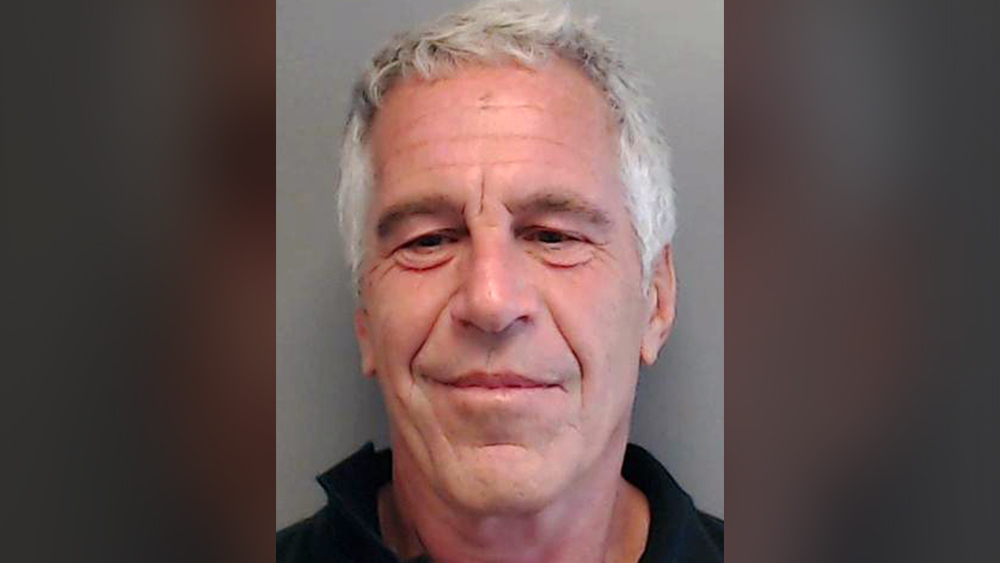 Parler
Parler Gab
Gab
- Pentagon IT specialist charged for alleged leak to foreign government amid Trump dissent.
- Arrested DIA employee’s actions highlight susceptibility to insider threats.
- FBI sting operation recovered documents hidden in socks, lunchbox and a thumb drive.
- Case adds to string of leaks, including Airman’s discord postings and Pentagon worker’s Mexico trip.
- FBI warns of rising ideological risks in national security ranks.
Leaks rooted in ideological clash
The case underscores a growing concern among national security experts: the overlap between personal politics and access to top-tier secrets. Laatsch, tasked with monitoring colleagues for potential threats, allegedly began transcribing classified documents onto a notepad in March before concealing them in his socks and lunchbox for removal from the facility. Over weeks, undercover FBI agents posing as foreign officials negotiated his disclosures, culminating in a May 1 drop-off of a thumb drive at a public park in Northern Virginia. Federal prosecutors painted Laatsch’s motive as a blend of ideological rejection and personal grievance. “This declaration of political difference goes beyond mere disagreement; it evidences intent to undermine U.S. interests,” Special Agent Matthew T. Johnson wrote in his affidavit. Laatsch later expressed hope to secure citizenship in the foreign country, stating that “things here to improve in the long term” were unlikely.Sting operation uncovers tactical weaknesses
The FBI’s sting, launched after a tip in March, leveraged undercover agents to engage Laatsch in detailed discussions about his ideological grievances. Over emails, he elaborated on his belief that the Trump administration had abandoned foundational democratic values, framing his leak as a form of civic “action.” “The calculus has not changed despite the risks,” Laatsch allegedly wrote. The recovery of the thumb drive, containing sensitive intelligence on defense systems and global conflicts, came as part of a May 29 sting near his home. Authorities stressed that the foreign recipient was a longstanding U.S. ally, complicating the narrative of a hostile attack. The DIA declined to comment on specific safeguards preceding Laatsch’s recruitment into its Insider Threat corps.Context and consequences: A pattern of polarized leaks
Laatsch’s case follows a troubling run of similar breaches. In 2023, Air National Guardsman Jack Teixeira leaked hundreds of classified documents to the Discord platform, detailing Ukraine war tactics and triggering a 15-year sentence. Pentagon employee Gokhan Gun also faced charges last summer for attempting to flee to Mexico with Top Secret material. These incidents, combined with Laatsch’s ideological focus, have spurred calls for stricter vetting and monitoring of cleared personnel. “The problem isn’t just Chinese moles or Russian agents,” said a senior national security official on condition of anonymity. “The people most trusted to protect our secrets are sometimes the most vulnerable to their own biases.”Balancing dissent and national security: A new normal
FBI Director Kash Patel called the Laatsch investigation a “critical win” in combating insider threats but acknowledged systemic challenges. “Political polarization has created fertile ground for individuals to mistake unfettered access for a mandate to judge policy,” Patel stated on X. “The line between free speech and treason is a narrow one when national secrets are at stake.” As the case moves to court, the legal debate will hinge on whether Laatsch’s grievances meet the legal threshold for “Espionage Act” violations—a standard that has been invoked sparingly due to First Amendment concerns. Legal analysts caution that overzealous prosecution risks* chilling dissent among civil servants. Meanwhile, the DIA has launched a review of its employee screening protocols after learning an insider threat officer became the threat itself.A crossroads for national security ethics
The arrest of Nathan Laatsch reframes debates about oversight, loyalty and reliance on human judgment within intelligence networks. While the case may become a precedent for confronting ideological leaks, it also expose flaws in trusting individuals to compartmentalize personal politics from vital national responsibilities. As tensions over executive policies escalate, Washington faces a stark choice: allocate more resources to monitor cleared personnel or risk repeating breaches that could redefine public trust in the security state. Sources for this article include: RT.com Yahoo.com BigNewsNetwork.comTrump declares L.A. ‘Under Insurrection’ as federal forces mobilize to expel illegal migrants
By Finn Heartley // Share
Julian Morris challenges the “climate change” consensus in his book
By Kevin Hughes // Share
INSANITY: Washington sanctions four ICC judges over Israel war crimes investigations
By Ramon Tomey // Share
Former Epstein defense lawyer DENIES Musk’s claim that Trump is named in financier’s docs
By Ramon Tomey // Share
Brazilian comedian sentenced to JAIL TIME over stand-up routine jokes
By Ramon Tomey // Share
Global greening surges 38%, but media silence reinforces “climate crisis” narrative
By Willow Tohi // Share
Governments continue to obscure COVID-19 vaccine data amid rising concerns over excess deaths
By patricklewis // Share
Tech giant Microsoft backs EXTINCTION with its support of carbon capture programs
By ramontomeydw // Share
Germany to resume arms exports to Israel despite repeated ceasefire violations
By isabelle // Share










